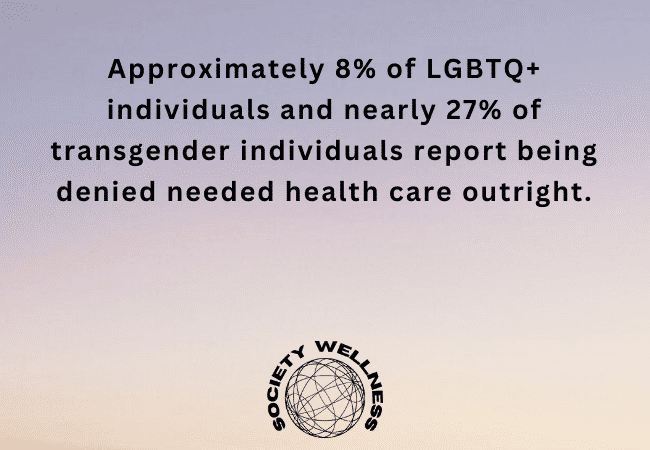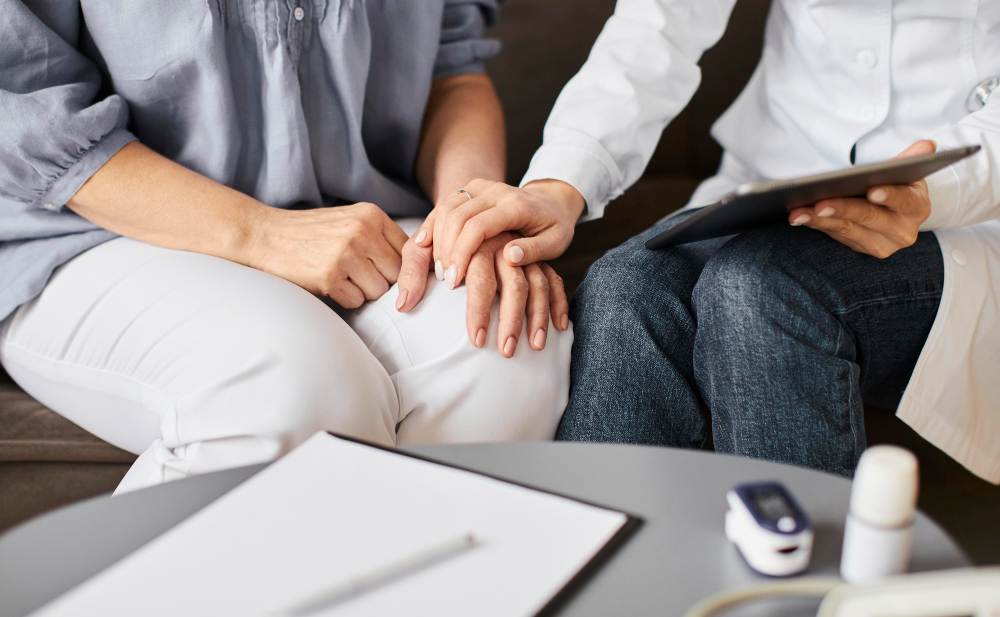Mental health challenges affect people from all walks of life, but for LGBTQ individuals, the burden is often heavier. The need for safe, culturally competent, and affirming care is not just important—it’s life-saving. For too long, members of the LGBTQ community have faced barriers to treatment, higher rates of trauma, and insufficient support from traditional healthcare systems.
Massachusetts has become a leader in expanding access to inclusive mental health care, offering a range of LGBTQ-affirming services such as LGBTQ couples therapy Massachusetts, Queer therapy Massachusetts, and a network of specialized LGBTQ mental health programs Massachusetts.
This blog explores why LGBTQ therapy is essential, what services are available, and how specialized care can transform mental wellness for LGBTQ individuals and couples.
The Mental Health Crisis in the LGBTQ Community
LGBTQ individuals face a greater risk of mental health challenges than their heterosexual and cisgender counterparts. These disparities are not due to being LGBTQ, but rather the result of living in a society that still marginalizes queer and trans identities.
National Mental Health Stats:
- LGBTQ adults are twice as likely to experience a mental health condition.
- Transgender people are nearly four times more likely to experience major depressive episodes.
- LGBTQ youth are over four times more likely to attempt suicide than non-LGBTQ peers.
- 50% of LGBTQ individuals report experiencing anxiety or depression.
Even in progressive states like Massachusetts, these disparities persist, making it clear that affirming therapy is essential.
Barriers to Accessing Mental Health Care for LGBTQ Individuals
Before we dive into the benefits of LGBTQ-specific therapy, it’s important to understand the real barriers many individuals face when trying to access care.
1. Lack of LGBTQ Cultural Competency in Providers
Many therapists and medical professionals lack training in LGBTQ issues. This can lead to:
- Misgendering or deadnaming
- Making assumptions about relationships or sexuality
- Ignoring the impact of minority stress and identity-based trauma
2. Past Trauma with Healthcare Systems
Many LGBTQ individuals have experienced discrimination in medical settings, leading to:
- Mistrust of healthcare providers
- Reluctance to disclose gender or sexual identity
- Avoidance of seeking care altogether
3. Financial Barriers and Insurance Issues
Accessing quality mental health care often depends on insurance networks or out-of-pocket costs. For LGBTQ individuals, especially those estranged from family or in lower-income brackets, cost becomes a major obstacle.
4. Geographic Isolation
Even in states like Massachusetts, rural or suburban areas may lack access to LGBTQ-specific therapy providers or group programs. This leaves many individuals without affirming local care options.
5. Internalized Shame and Stigma
Deciding to start therapy is difficult for anyone. For LGBTQ individuals, this can be complicated by:
- Fear of being judged for their identity
- Guilt over trauma responses
- Feeling like therapy won’t help or that their pain isn’t valid
Understanding these barriers emphasizes the need for LGBTQ Behavioral Health Centers in Massachusetts that offer comprehensive, inclusive, and supportive mental health treatment.
Why LGBTQ Therapy Matters
LGBTQ therapy is more than just mental health care—it’s a safe space to heal, grow, and be fully seen. Affirming therapy supports LGBTQ people as they navigate:
- Coming out
- Gender transitions
- Relationship dynamics
- Trauma recovery
- Anxiety, depression, and other mental health conditions
Standard therapy models can fall short when they ignore or overlook LGBTQ experiences. In contrast, LGBTQ therapy is built to:
- Validate identity and expression
- Address minority stress and trauma
- Provide culturally sensitive tools for healing
Therapeutic Services Designed for the LGBTQ Community in Massachusetts
LGBTQ Behavioral Health Centers across Massachusetts offer a full spectrum of support, from individual therapy to relationship counseling to clinical mental health programs.
1. LGBTQ Couples Therapy Massachusetts / LGBTQ Couples Counseling Massachusetts
Queer couples face unique dynamics, including:
- Navigating non-traditional family structures
- Managing external stressors (discrimination, visibility, legal issues)
- Exploring polyamory or non-monogamy
Through LGBTQ couples counseling, partners learn:
- Effective communication skills
- Conflict resolution strategies
- Emotional intimacy and trust-building
Whether you’re in crisis or just want to grow stronger as a couple, LGBTQ couples therapy can help rebuild connection in affirming ways.
2. Queer Therapy Massachusetts
Queer therapy is a liberatory, inclusive, and intersectional approach to mental health. It’s ideal for individuals exploring:
- Gender identity or transition
- Sexual orientation and coming out
- Self-esteem and body image issues
- Internalized homophobia or transphobia
Therapists offering queer therapy are trained to affirm identity, address cultural trauma, and integrate methods like CBT, DBT, and trauma-informed care in an LGBTQ-centered framework.
3. LGBTQ Mental Health Programs Massachusetts
LGBTQ mental health programs offer comprehensive treatment for moderate to severe mental health conditions. These programs often include:
- Individual and group therapy
- Psychiatry and medication management
- Peer support
- Skills training and relapse prevention
Clients may be referred to different levels of care based on need, including:
4. LGBTQ Partial Hospitalization Program Massachusetts (PHP)
- Best for: Individuals needing full-day support without overnight stay
- Offers:
- Structured therapy schedule
- Medication monitoring
- Crisis management
- Life skills training
- LGBTQ-affirming group environments
5. LGBTQ Intensive Outpatient Program Massachusetts (IOP)
- Best for: Clients stepping down from PHP or requiring structured part-time care
- Offers:
- Day or evening group sessions
- Individual therapy
- Ongoing psychiatric care
- Family or couples sessions
6. LGBTQ Evening Outpatient in Massachusetts
- Best for: Those working or attending school who need flexible mental health support
- Offers:
- Evening therapy groups
- Individual and couples therapy
- Emotional regulation and stress management tools

Condition-Specific LGBTQ Therapy Programs in Massachusetts
LGBTQ Anxiety Treatment Program in Massachusetts
Anxiety is a natural response to societal pressure, discrimination, and identity suppression. Treatment helps individuals:
- Learn coping tools for daily anxiety
- Challenge anxious thoughts
- Manage social anxiety or panic attacks
- Set healthy boundaries in unsafe spaces
LGBTQ Depression Treatment Program in Massachusetts
This program focuses on restoring hope and function with tools like:
- Behavioral activation
- Cognitive restructuring
- Group support to reduce isolation
- Trauma-informed approaches for marginalized individuals
LGBTQ Trauma Treatment Program in Massachusetts
Designed for survivors of:
- Hate crimes, bullying, or family abuse
- Medical trauma
- Emotional or sexual abuse
- Gender dysphoria-related trauma
Includes EMDR, somatic therapy, and narrative healing, tailored to LGBTQ experiences.
LGBTQ Bipolar Treatment Program in Massachusetts
People with bipolar disorder receive:
- Stabilization through medication and therapy
- Daily monitoring of mood symptoms
- Support in navigating the impact of bipolar on identity and relationships
- Coping tools to manage mood cycles and prevent relapse
Community, Belonging, and Peer Support
Healing doesn’t happen in isolation. That’s why LGBTQ Behavioral Health Centers foster community through:
- Group therapy and support circles
- Peer-led workshops and education
- Social connection through sober events and LGBTQ+ affirming activities
These spaces provide more than just treatment—they offer a sense of belonging, which is essential to long-term recovery and wellness.
Conclusion
LGBTQ therapy is essential not just because LGBTQ individuals face unique challenges—but because every person deserves to heal in a space where their identity is respected and honored.
From queer-affirming therapy to structured mental health programs like PHP and IOP, Massachusetts offers LGBTQ individuals access to care that sees the whole person—not just the symptoms. Call LGBTQ Behavioral Health at 888.964.8116 to begin your healing journey with therapists who truly understand your lived experience.
FAQ on LGBTQ Therapy and Mental Health Support
Why is LGBTQ-specific therapy important?
LGBTQ-specific therapy provides a safe, affirming space where individuals can explore their mental health without fear of judgment, misgendering, or invalidation. Therapists trained in LGBTQ issues understand the unique challenges faced by queer and trans clients, including discrimination, minority stress, and identity development.
What types of LGBTQ mental health programs are available in Massachusetts?
Massachusetts offers a wide range of LGBTQ-affirming mental health services, including:
-
Therapy for anxiety, depression, trauma, bipolar disorder, and more
These programs combine therapy, psychiatry, and peer support in inclusive clinical environments.
What is queer therapy, and how is it different?
Queer therapy is a therapeutic approach that affirms and celebrates LGBTQ identities. It goes beyond tolerance to address issues like internalized stigma, non-traditional relationships, gender dysphoria, and sexual fluidity in a way that is culturally competent and affirming.
Can LGBTQ couples get relationship counseling in Massachusetts?
Yes. LGBTQ couples therapy and counseling in Massachusetts helps partners navigate:
-
Communication challenges
-
Identity-related stress
-
Intimacy and trust
-
Family or societal pressure
These sessions are grounded in affirming relationship dynamics, including open or polyamorous partnerships.
How do I know if I need LGBTQ therapy?
You may benefit from LGBTQ-specific therapy if you:
-
Feel misunderstood or unsafe in traditional mental health settings
-
Experience anxiety, depression, or trauma related to your identity
-
Struggle with family rejection, self-esteem, or coming out
-
Want help navigating your relationships, gender, or sexual orientation
Is financial assistance or insurance available for LGBTQ mental health treatment in Massachusetts?
Many LGBTQ Behavioral Health Centers in Massachusetts accept insurance and offer sliding scale fees or payment plans. It’s best to call directly to discuss your coverage and treatment options.

